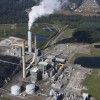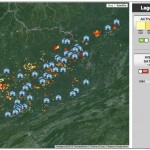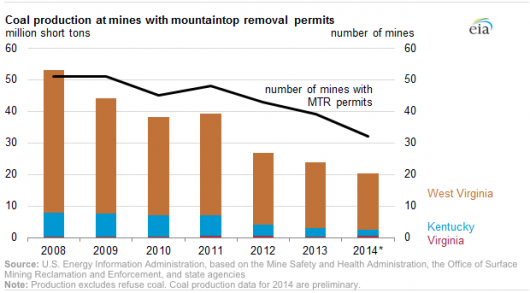Written by Brian Sewell
Brian Sewell
Brian is an environmental news junkie concerned with our lagging energy policy and revealing the true cost of coal on our health, the environment and the climate. He is Appalachian Voices' Director of Strategic Advancement.
Wise County Board of Supervisors joins growing list of localities supporting POWER+ Plan
CONTACT: Adam Wells, Economic Diversification Campaign Coordinator, 276-679-1691,…
Interior Department Issues Draft Stream Protection Rule
Contact: Cat McCue, Communications Director, 434-293-6373, cat@appvoices.org Today,…
EIA: Mountaintop removal coal production down
The U.S. Energy Information Agency (EIA) published a blog post today showing that coal produced by mountaintop removal mining in Central Appalachia decreased by 62 percent between 2008 and 2014. Demand for Central Appalachian coal will continue to decline, making further progress inevitable. But we won’t end mountaintop removal by relying on the market alone.
Supreme Court delivers blow to EPA’s mercury rule
In a major decision today, the Supreme Court ruled the U.S. Environmental Protection Agency did not properly consider costs when it created a rule to limit mercury emissions from power plants. But the agency has a mandate and a clear path forward to protect public health by limiting emissions of mercury and other toxic air pollutants.
Another challenge facing coal: Cleaning up

A “crass abuse of power” in the N.C. Senate
The disgust with North Carolina Sen. Bob Rucho today is broad and bipartisan. Yesterday in the Senate finance committee, which he chairs, Rucho not only limited debate on provisions of HB332, which would freeze the state’s highly successful Renewable Portfolio Standard, he refused to allow an individual tally of votes and declared a failed bill passed.
Duke Energy to close aging Asheville coal plant

A new challenge to fracking in North Carolina

Appalachian communities at growing risk from mountaintop removal

Apologies for the Dan River spill, guilt for coal ash crimes





